I felt ambivalent about the new, Jane Campion-directed film about John Keats and Fanny Brawne. Why? Biopics are always hit or miss, and I’m not a fan of Campion. When the film played for a week at a nearby theater and then disappeared before we had a chance to go, I figured I’d have to wait to watch it on DVD sometime next year.
But then Eileen Myles came to town, and it turned out that she wanted to see it, too, and Michael Kelleher discovered it was still showing way out in B.F.E., and, well — I couldn’t pass up a chance to go see it with the two of them, and Mike’s wife, Lori.
The verdict: decidedly mixed.
In Campion’s hands, the movie’s a nice enough love story, largely told from the point of view of Fanny Brawne. The actors are pleasant and unknown–thank God she didn’t plug in someone like Collin Farell and Reese Witherspoon. As Eileen pointed out, Keats’s accent was all wrong; we were talking on the way there about Tom Clark‘s great book about Keats, Junkets on a Sad Planet, “Junkets” being a nickname that developed out of the way Keats pronounced his name. In the film the accent was way too properly British.
It’s a minor quibble, but symptomatic of the larger problem with the movie. In a nutshell, what’s missing is exactly the essence–the essential accuracy, the right details, the poetry.
Here’s an example: Campion seems to want to establish the idea that Brawne’s talent for sewing and embroidery puts her on equal footing with Keats and his poetry — as she has Brawne declare to Charles Brown and Keats in the opening scene (paraphrasing), “More people appreciate my sewing than your poetry — and I make money at it.” Zing! We’re reminded that she was “up all night” working on an embroidered pillow-slip for John’s brother Tom, who has just died of TB, and Brawne is shown literally bringing needlework into the drawing room where Brown and Keats work on poems. Fair enough point, but it misses the point of Keats struggling to make room for Fanny in his world of poetry, and her efforts to meet him there.
In one scene, Fanny storms into the drawing room looking for Keats, only to find Brown. (Needing a domestic villain, Campion–unfairly, I think–tries to make Brown a wet blanket in the flirtation between Fanny and Keats.) Desperate to impress Keats, she tells Brown she’s read all of Homer, Spenser, Milton, etc. etc., all in the past week. Brown quizzes her, quickly poking holes in this claim, and she storms off in a huff. The point seems to be that she has the native wit to understand Keats, and the fineness and importance of his poetry, without actually doing the homework.
But in fact, it’s not true. Quite by accident, I discovered evidence of this the very next morning after we saw the film. In an article I happen to be reading about Spenser for class, the author suddenly shifts gears to write about a stanza that was added to a canto in The Faerie Queen — by John Keats. Charles Brown claimed it was “the last stanza of any kind that he wrote before his lamented death.” Apparently, Keats was marking the text for Fanny Brawne at the time. There’s simply no way that Brawne could have understood the stanza, let alone the highly allegorical and difficult poem as a whole, unless she had undertaken a fairly serious study of it.
How do you depict this in a film? I don’t know. But Campion doesn’t even try. She instead substitutes scenes of Keats and Brawne quoting his poetry at one another, with bits from Keats’s letters sprinkled in. Obviously, she was worried about getting lost in the esoteric minutia of “the life of the mind” — but the struggle to carve out a space for himself in that life, even while dealing with the workaday grind of “real” life (sickness, poverty, issues of class, etc.) constitute the real drama of Keats. His ambivalent, troubled welcoming of Fanny into that life is the real mystery and miracle of their relationship. Campion doesn’t come close to capturing it.
But we had fun seeing it, and debating about it on the long, stormy ride home.


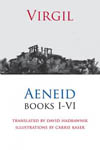
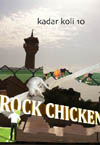
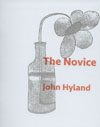
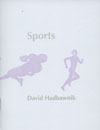
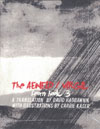
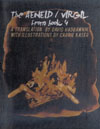
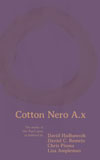
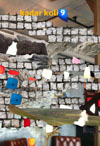
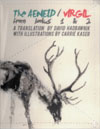
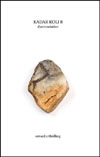
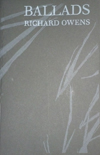
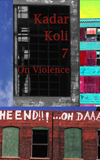
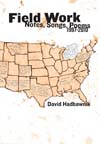
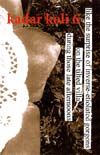
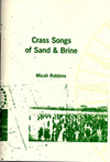
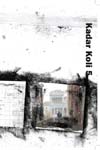
Of course, bio pics aren’t about historical accuracy– they’re about drama. At least in my mind. I understand your review as a poet, but I feel like you’re judging it by unfair standards– i.e. those it wasn’t made to meet.
My real question is– Did the romance move you? Did their relationship have a pulse on screen? If not, why? How was the cinematography and the music? etc. I’m curious, because I’ve thought of seeing the film myself.
stephen
yeah, i thought of that. obviously you risk making it a film for poetry buffs. but on the other hand — honestly — this film wouldn’t make me want to pick up a book and check out the poetry. i thought the movie about sylvia plath and ted hughes about ten yrs ago was way better done.
and no, the romance did not move me. really i don’t know why. the acting was fine. the cinematography and music nondescript. not sure how helpful that is…
I wonder if the attempts to portray “the life of the mind” have reached a point of convention that creates in audiences an expectation of form. Similarly, videos of poems nearly always use slow-motion. Why?
Steve
good to hear from you. have you seen it? wait for it to come to the dollar theater, if not. thankfully, there was no slow motion in Bright Star. Which videos are you talking about?
probably the best movie I’ve ever seen about “the life of the mind” was Barton Fink. “I’ll show you the life of the mind!” great stuff.